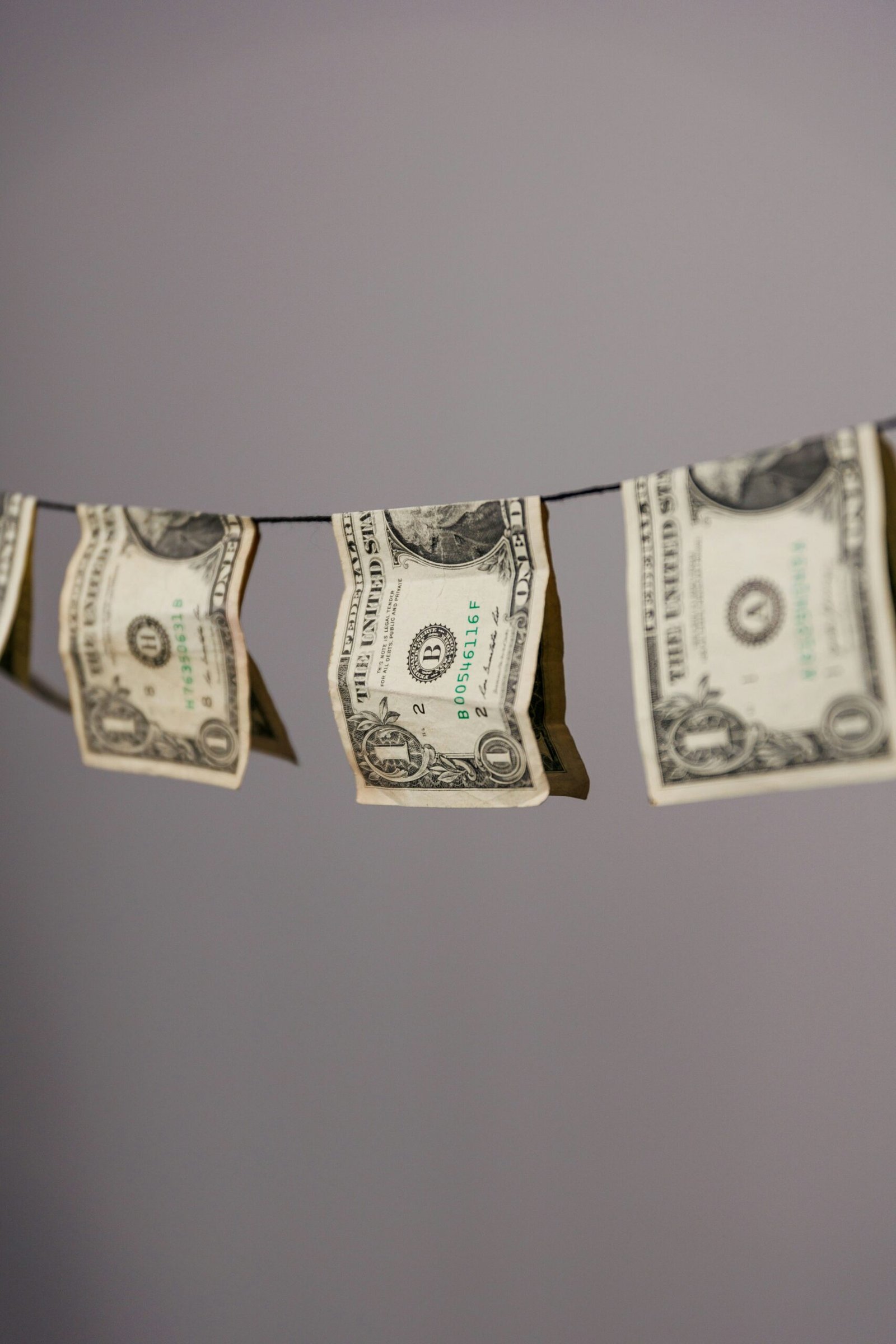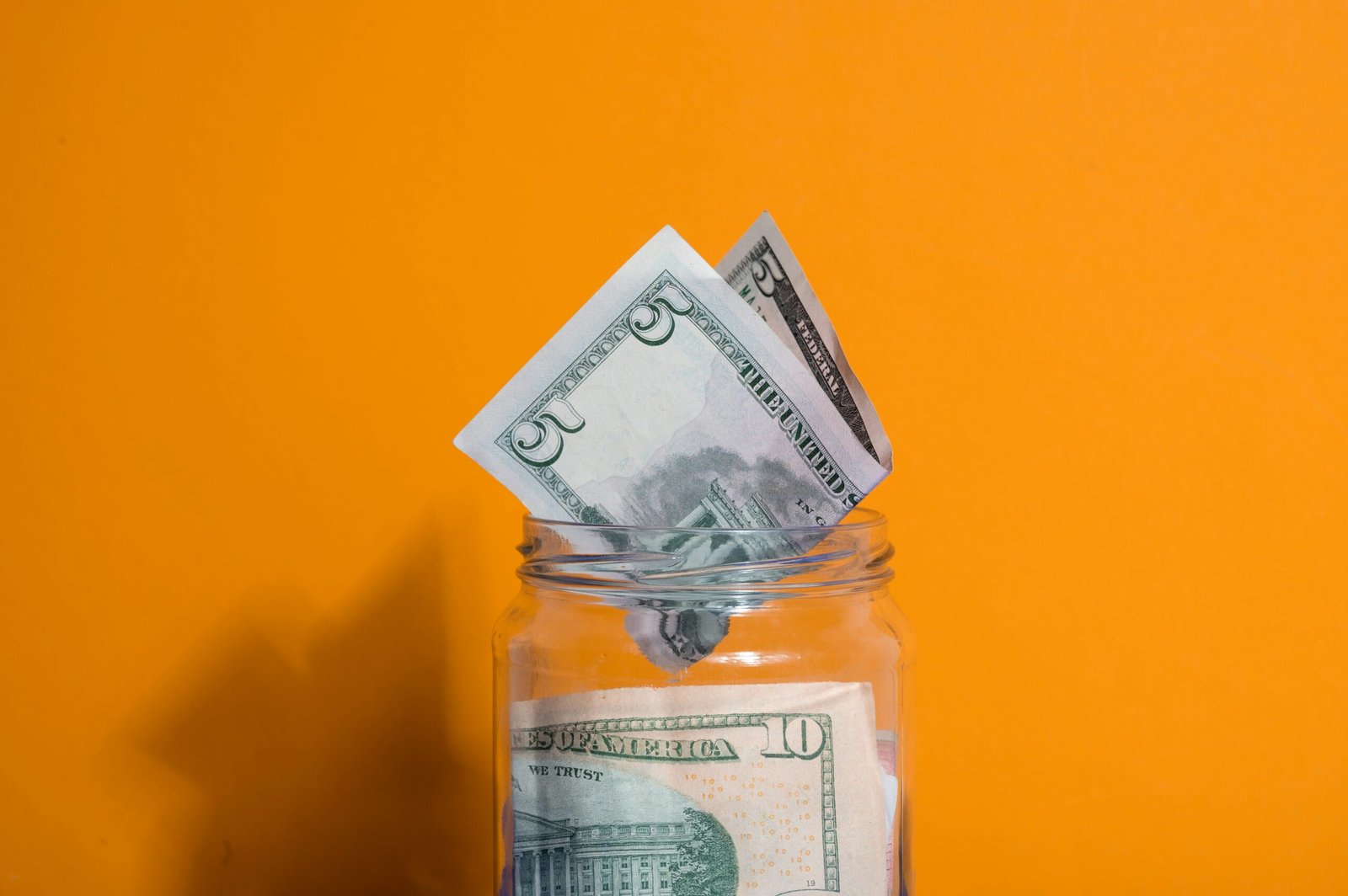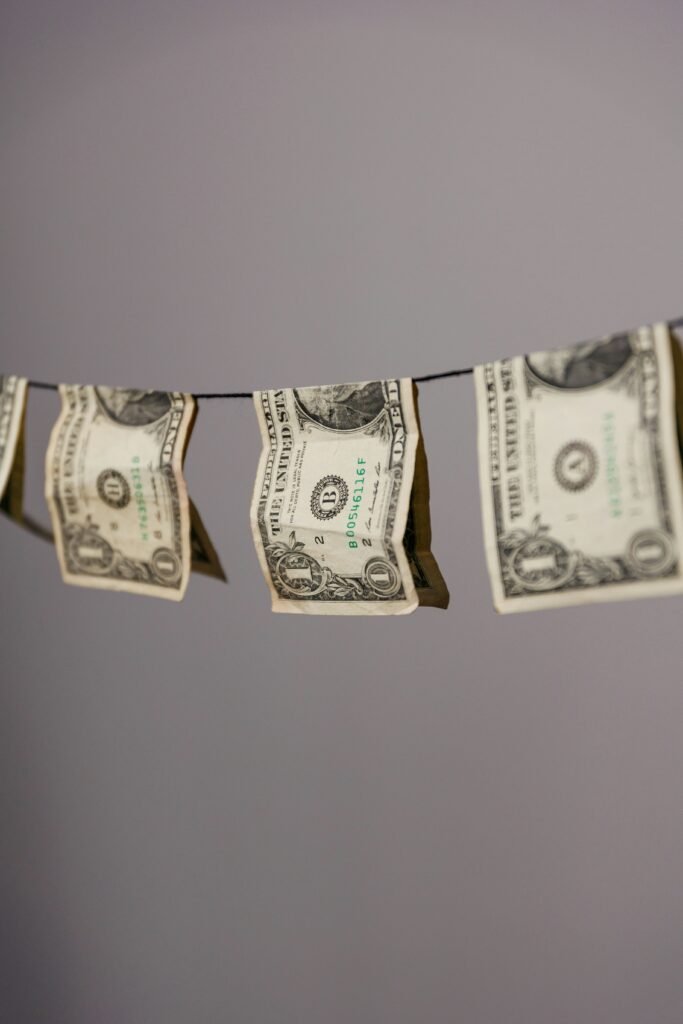Business & Money
Unleashing Financial Freedom: The Art of Discerning Spending

Expert Insights on Prioritizing Your Financial Well-being Through Thoughtful Choices
In a world brimming with tempting spending opportunities, the ability to say “no” to what’s not important is akin to wielding a magic wand of financial empowerment. As seasoned financial experts, we understand that the path to mastering smart saving is paved with conscious choices. In this comprehensive guide, we’ll unravel the transformative art of discerning spending. Armed with actionable insights and real-world anecdotes, you’ll learn how to sculpt your financial destiny by embracing the liberating power of the word “no.”
The Power of Purposeful Choices
Imagine each financial decision as a brushstroke on the canvas of your future. The art lies in understanding your values, aligning them with your goals, and carving a path of intentionality. Saying “no” to fleeting indulgences becomes a “yes” to your enduring aspirations.
Early Adulthood: Planting Seeds of Financial Wisdom
Real-Life Example: Meet Emily, a recent graduate who decided to forgo her daily café latte habit. By redirecting those funds, she was able to build a healthy emergency fund within a year.
Tips:
Define Financial Priorities: Unearth your true financial desires. Prioritize these over-impulsive purchases that yield temporary pleasure.
The Gratification Delay: Pause before spending. The time taken to evaluate your need can often diminish the desire for instant gratification.
Mid-Career: Crafting Financial Well-being
Real-Life Example: Introducing Mike, a mid-career professional who resisted upgrading to a luxury car. Redirecting those funds allowed him to invest in a skill-building course that advanced his career.
Tips:
Invest in Experiences: Opt for experiences that enrich your life, transcending fleeting materialism. The memories created are enduring treasures.
Value-Based Spending: Assess if each expense resonates with your values. This filter ensures that your spending echoes your true self. Approaching Retirement: Harvesting Financial Wisdom
Real-Life Example: Consider Jane and Robert, a couple approaching retirement. They chose to downsize their living space and redirect the funds toward their grandchildren’s education.
Tips:
Streamline Recurring Costs: Audit your subscriptions and services regularly. Eliminate those that no longer align with your goals.
Legacy through Experiences: Create a legacy by investing in shared experiences with loved ones, leaving a lasting imprint beyond material possessions.
In the symphony of financial decision-making, the word “no” emerges as a harmonious note of empowerment. By leveraging the insights shared here, you’re not just learning to say “no” – you’re embracing it as a gateway to crafting a life that’s meaningful, purposeful, and financially secure. Each instance of rejecting what’s not important becomes a brushstroke of empowerment, painting the picture of your future prosperity. The journey starts with one word: “No.” Embrace it, and let your financial transformation begin.
Contact STATT Financial: info@stattfs.com
Business & Money
Ghislaine Maxwell Just Told Congress She’ll Talk — If Trump Frees Her

February 9, 2026 — Ghislaine Maxwell tried to bargain with Congress from a prison video call.
Maxwell, the woman convicted of helping Jeffrey Epstein traffic underage girls, appeared virtually before the House Oversight Committee today and refused to answer a single question. She invoked her Fifth Amendment right against self‑incrimination on every substantive topic, including Epstein’s network, his associates, and any powerful figures who moved through his orbit.

Maxwell is serving a 20‑year federal sentence at a prison camp in Texas after being found guilty in 2021 of sex‑trafficking, conspiracy, and related charges. Her trial exposed a pattern of recruiting and grooming minors for Epstein’s abuse, and her conviction has been upheld on appeal. Despite that legal reality, her appearance today was less about accountability and more about negotiation.
Her lawyer, David Markus, told lawmakers that Maxwell would be willing to “speak fully and honestly” about Epstein and his world — but only if President Donald Trump grants her clemency or a pardon. Markus also claimed she could clear both Trump and Bill Clinton of wrongdoing related to Epstein, a statement critics immediately dismissed as a political play rather than a genuine bid for truth.
Republican Chair James Comer has already said he does not support clemency for Maxwell, and several Democrats accused her of trying to leverage her potential knowledge of powerful people as a way to escape prison. To many survivors’ advocates, the spectacle reinforced the sense that the system is more sympathetic to the powerful than to the victims.
At the same time, Congress is now reviewing roughly 3.5 million pages of Epstein‑related documents that the Justice Department has made available under tight restrictions. Lawmakers must view them on secure computers at the DOJ, with no phones allowed and no copies permitted. Early reports suggest that at least six male individuals, including one high‑ranking foreign official, had their names and images redacted without clear legal justification.

Those unredacted files are supposed to answer questions about who knew what, and when. The problem is that Maxwell is signaling she may never answer any of them — unless she is set free. As of February 9, 2026, the story is still this: a convicted trafficker is using her silence as leverage, Congress is sifting through a wall of redacted files, and the public is still waiting to see who really stood behind Epstein’s power.
Business
Overqualified? Great, Now Prove You’ll Work for Free and Love It!

The phrase “Overqualified? Great, Now Prove You’ll Work for Free and Love It!” sums up the snake-eating-its-tail absurdity of the modern job search. In 2025, the most experienced, credentialed candidates are told they’re not quite the right fit—because they’re too capable, too seasoned, and might actually threaten the status quo by knowing what they’re worth.

The Experience Dilemma
Picture this: half the workforce has too much education or experience for the entry-level roles on offer, and yet, employers still claim they can’t find “qualified” people. The result? An absurd interview dance where applicants with years of achievement must convince employers they’re perfectly fine being underpaid and unappreciated. Many are even asked to perform hours of free “sample work”—projects that benefit the company but are never compensated.
Nearly half of job seekers have applied for jobs for which they were overqualified this year, and about a quarter feel “overqualification” is a major obstacle to actually getting hired. Employers call it “hiring for culture fit” or “salary alignment.” Candidates call it gaslighting: “We love your credentials, but wouldn’t someone like you get bored… or want a living wage?”.
Free Labor: The New Normal
The job hunt is now a marathon of unpaid labor. Applicants often rewrite resumes dozens of times (to game robotic filters), complete personality tests, and spend weeks in multi-stage interviews, only to be ghosted. In a perverse twist, talented workers jump through hoops for jobs explicitly beneath their skill level, all because employers believe an overqualified hire will “leave at the first better opportunity.” In reality, people just want to pay the bills—and would gladly contribute their value if someone gave them a chance.

Even as companies bemoan a “labor shortage,” they turn away the best and brightest, fearing they’ll disrupt the hierarchy, demand raises, or burn out from boredom. What’s left? The less skilled get trained on the job, and even they are told not to expect too much—after all, wouldn’t you do it for the “experience” alone?.
The Absurdity of the Market
Workers at every level—laid off, mid-career, executives—are hunting desperately for positions once reserved for recent graduates. Administrative jobs that previously required a high school diploma now routinely demand a college degree and relevant work history. Degree inflation means the bar keeps rising, but the pay and job security aren’t budging; 2025’s job search feels more like a dystopian obstacle course than a professional meritocracy.
Employers wield the “overqualified” label to maintain the illusion that they could hire anyone, while making sure they never have to pay what a role is really worth. Ironically, most companies spend more time filtering out talent than developing it—and everyone loses in the end.

What’s the Solution?
Job seekers are increasingly advised to do the following:
- Tailor resumes and cover letters to each application, emphasizing culture fit and signaling “no threat to the boss”.
- Network with insiders for referrals, since faceless applications are now nearly pointless.
- Accept that unpaid proof-of-skills work is now part of the game.
- Keep learning, but remember: adding skills may just make you even more overqualified for the next round.
The paradox of 2025? “Show us your value—just don’t expect to be treated like you have any.” The only thing more overqualified than today’s job seeker is the job market itself: packed with hurdles, full of empty promises, and rigged to keep the most talented quietly waiting for a call that may never come.
Business & Money
How the GENIUS Act Will Transform Your Money and Payments

The passage of the GENIUS Act in 2025 marks a revolutionary step in how money and payments will work in the United States. It is the first comprehensive federal law specifically regulating stablecoins—digital currencies pegged to traditional money like the U.S. dollar. This new legislation is poised to reshape your experience with money, making payments faster, more transparent, and potentially cheaper, while introducing clear consumer protections and regulatory standards for digital currencies.

What is the GENIUS Act?
The GENIUS Act stands for Guiding and Establishing National Innovation for U.S. Stablecoins. It establishes a clear legal framework for stablecoins, which are designed to hold a steady value (usually $1) unlike the more volatile cryptocurrencies such as Bitcoin. Stablecoins are increasingly used for routine transactions such as paying bills, sending remittances, or transferring money across borders.
Under the new law:
- Only authorized issuers like banks, credit unions, and federally approved non-bank financial institutions can issue stablecoins.
- Issuers must maintain 100% reserves—meaning for every digital coin issued, there must be a corresponding $1 held in cash, U.S. Treasury securities, or other approved liquid assets.
- Issuers are required to undergo regular audits and publish disclosures about their reserves.
- If an issuer fails or goes bankrupt, holders of stablecoins get priority in getting their money back ahead of other creditors.
This stringent reserve and audit requirement provides much-needed transparency and trust for consumers.
Key Consumer Benefits and Protections
- Faster, Cheaper Payments
Integrating stablecoins into mainstream banking systems can speed up transactions dramatically. You could receive paychecks instantly, send money overseas with minimal fees, and settle payments without the delays typical of current banking transfers. - Clear Regulation and Oversight
Before the GENIUS Act, the regulatory environment was fragmented and uncertain. Now, stablecoins have a federal framework that coordinates oversight between federal and state regulators to prevent fraud, money laundering, and abuses. - Privacy and Government Limits
The law bans the Federal Reserve from creating retail Central Bank Digital Currencies (CBDCs)—digital dollars controlled directly by the government—addressing privacy concerns about surveillance of everyday spending. - Financial Stability and Consumer Priority
The Act gives stablecoin holders priority status in bankruptcy cases, meaning your digital dollars are protected better than traditional bank deposits or bondholder claims in insolvencies.

What This Means for You
The GENIUS Act could significantly change your daily financial life:
- You may start to see stablecoins integrated within banking apps, payroll systems, and payment services.
- Money transfers could become almost instantaneous and cost less, especially across borders.
- More businesses and financial institutions might accept digital dollars pegged to the U.S. dollar.
- Consumer protections could increase, with more audit oversight and clarity about your rights as a stablecoin holder.
However, challenges remain. Regulators have up to 18 months to finalize detailed rules on audits, reserve management, fraud prevention, and compliance. The evolving regulations will determine how safe and seamless digital currency payments become.
A Global Race to Modernize Money
While the U.S. passed the GENIUS Act to catch up, other countries like China and members of the European Union are already piloting their own digital currencies. The legislation positions the U.S. to retain the dollar’s dominant role globally by tying digital currencies directly to U.S. dollars and Treasury securities, potentially boosting demand for American debt and keeping borrowing costs stable.
The Future of Money and Payments
The GENIUS Act opens the door to a more modern, efficient financial system where digital dollars coexist with traditional money, offering consumers faster options and better protections. While adoption will take time, this law lays the groundwork for a future where your payments, savings, and everyday money management are fundamentally transformed by technology—making financial services more accessible, transparent, and resilient.

Whether you choose to use stablecoins actively or not, the changes unfolding will reach into many aspects of how money moves in our economy. Staying informed about this evolving landscape will help you navigate the future of payments confidently.

 Advice3 days ago
Advice3 days agoHow to Make Your Indie Film Pay Off Without Losing Half to Distributors

 Entertainment3 weeks ago
Entertainment3 weeks agoWhat the Epstein Files Actually Say About Jay-Z

 Film Industry4 weeks ago
Film Industry4 weeks agoTurning One Short Film into 12 Months of Content

 Film Industry3 weeks ago
Film Industry3 weeks agoAI Didn’t Steal Your Job. It Revealed Who Actually Does the Work.

 Entertainment2 weeks ago
Entertainment2 weeks agoWhat Epstein’s Guest Lists Mean for Working Filmmakers: Who Do You Stand Next To?

 Film Industry4 weeks ago
Film Industry4 weeks agoHow to Write a Logline That Makes Programmers Hit Play

 News3 weeks ago
News3 weeks agoCatherine O’Hara: The Comedy Genius Who Taught Us That Character Is Everything

 Business2 weeks ago
Business2 weeks agoNew DOJ Files Reveal Naomi Campbell’s Deep Ties to Jeffrey Epstein






































